OK, folks, so I purchased my Chicago International Film Festival tickets today! If you want to know about the 15 films I'll be seeing October 17-27, send me an email, and I'll give you the details. Maybe you'll want to come along!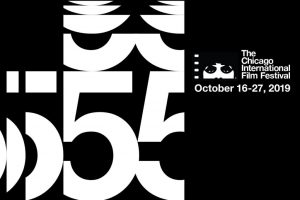

Sunday, September 29, 2019
See You at the Festival!
Wednesday, September 25, 2019
This Week in Movies with Meaning
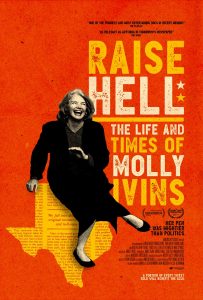
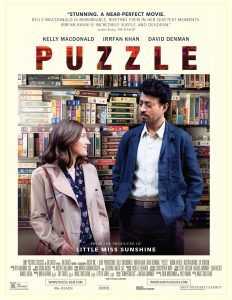
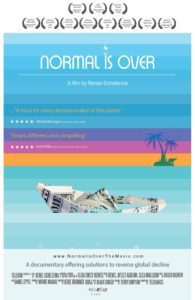


‘Raise Hell’ profiles one writer’s pursuit for truth
“Raise Hell: The Life & Times of Molly Ivins” (2019). Cast: Molly Ivins. Interviews: Dan Rather, Rachel Maddow, Lou Dubose, Jim Hightower, Andy Ivins, Sara Ivins Maley, Carlton Carl, Dave “Moose” McNeely. Archives: George W. Bush, George H.W. Bush, Ann Richards, David Letterman, Morley Safer, John Henry Faulk. Director: Janice Engel. Screenplay: Janice Engel and Monique Zavistovski. Web site. Trailer.
Getting the word out about what’s really going on can be quite a challenge, especially when those in the know may try to conceal the truth, soft-peddle its implications or spin it to their personal advantage. Overcoming that takes a writer-investigator who’s willing to dig deep and to keep from caving in to pressure to doctor the information to fulfill a particular agenda. It also helps to inject a little humor to attract and keep the audience’s attention. So it was for a crafty reporter who managed to pull off all of the foregoing, a career chronicled in the enlightening and entertaining new documentary, “Raise Hell: The Life & Times of Molly Ivins.”
Even in the heyday of newspapers, it was a rather rare feat for journalists in that medium to attain national acclaim. But one who achieved that – and did so by creating a readily distinguishable persona for herself – was Molly Ivins (1944-2007). The outspoken, salty-tongued reporter who channeled those qualities into her work managed to steadily rise up through the ranks of her field. She became a print icon who not only had avid readers, but, more precisely, a constituency, one that hung on her wisecracks and her pearl-handled wisdom.
So what made Molly so charismatic? In essence, readers knew who she was and where she was coming from. She carefully crafted a writing style that set her apart from many of her peers (often penning her stories in first person, for example, a practice generally considered a journalistic no-no), covering topics with her acerbic wit and mastering the art of being able to knock down sacred cows, particularly in the political establishment. But, more than that, she created a distinctive, readily identifiable image for herself, one of a seemingly oxymoronic nature – that of a hard-drinking, pickup-driving Texas liberal.
[caption id="attachment_11001" align="aligncenter" width="300"]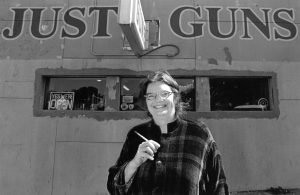 Salty-tongued Texas journalist Molly Ivins made quite a name for herself with her wisecracking writing and hard-partying way of life as seen in the candid new documentary, “Raise Hell: The Life & Times of Molly Ivins.” Photo courtesy of Magnolia Pictures.[/caption]
Salty-tongued Texas journalist Molly Ivins made quite a name for herself with her wisecracking writing and hard-partying way of life as seen in the candid new documentary, “Raise Hell: The Life & Times of Molly Ivins.” Photo courtesy of Magnolia Pictures.[/caption]
At the risk of overgeneralizing, as contradictory as that label might seem, Molly embraced it to set her apart from the more “conventional” liberal stereotype. By coming across as a typical, tough-talking Texas girl who just happened to adhere to left-leaning sentiments, she won over the hearts and minds of many who may not have otherwise given her the time of day. To readers, she came across more like “one of us” than those who put on airs in making their views known.
Molly’s worldview came out of her upbringing. She indeed loved being from the Lone Star State, but she also questioned the staunchly conservative values that seemed everywhere around her, especially in her family life. Having been born the daughter of “General Jim” Ivins, a strict, authoritarian oil and gas company executive, she was routinely subjected to his rigid right-wing ideologies, ideas that riled her into vociferously expressing her polar opposite viewpoints. This independent streak soon led to study at a prestigious Houston college prep school and then enrollment at the respected liberal arts institution, Smith College, a course of study that included a year abroad in Paris. Through her studies, she developed an aptitude for writing, the springboard for her career.
After graduating from Smith and earning a master’s degree in journalism from Columbia University, Molly launched her life as a writer and reporter by working for The Houston Chronicle and The Minneapolis Tribune. But Molly truly cut her teeth as a journalist by covering Texas politics (most notably the state legislature) for The Texas Observer. Through her reporting of that esteemed yet often-farcical institution, she sharpened her sense for spotting and calling out corruption, self-interest and downright political idiocy. She was off and running.
After leaving the Observer, Molly took her talents to The New York Times, which hired her because of a concern that the paper’s writing style had grown too staid and bland. Ivins was brought aboard to shake things up, but, once there, she was regularly hemmed in by the button-down culture of the Times, preventing her from doing what she was brought on board to do. After a comical falling out with Times editor Abe Rosenthal, Molly packed her bags and returned to Texas, taking a job as columnist for The Dallas Times Herald. Ivins held that job for 10 years, receiving two Pulitzer Prize nominations, before moving on to The Fort Worth Star-Telegram, where she worked until becoming an independent syndicated columnist and published author.
[caption id="attachment_11002" align="aligncenter" width="300"]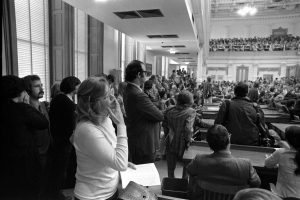 Covering the circus that often is the Texas state legislature, reporter Molly Ivins brought wit and wisdom to her readers as chronicled in director Janice Engel’s smart new documentary, “Raise Hell: The Life & Times of Molly Ivins.” Photo courtesy of Magnolia Pictures.[/caption]
Covering the circus that often is the Texas state legislature, reporter Molly Ivins brought wit and wisdom to her readers as chronicled in director Janice Engel’s smart new documentary, “Raise Hell: The Life & Times of Molly Ivins.” Photo courtesy of Magnolia Pictures.[/caption]
Along the way, Molly became quite acquainted with many of journalism’s elite and with many prominent politicians, both in Texas and nationally. Among those she befriended was Texas Gov. Ann Richards (D), the rollicking keynote speaker at the 1988 Democratic National Convention. Richards and Ivins were kindred spirits cut from the same cloth, especially when it came to their hard-partying ways, a habit that eventually led to both of them seeking assistance for substance abuse.
While Richards recovered from her condition, Ivins, unfortunately, struggled with it. She had convinced herself that alcohol was so much a part of her work and her image that she had difficulty giving it up. She often used drinking as a tool for getting stories out of sources, her ability to hold vast quantities of liquor often enabling her to hold her own during drawn-out tippling sessions with the good ole boys of Texas politics. But, unfortunately, it went beyond that, so much so that, when she went for one of her job interviews, she took her own six-pack with her.
Somehow, though, Molly managed to hold it together well enough as a functional alcoholic to have a storied and successful career. That career, though, ran into a brick wall when she was diagnosed with an aggressive form of breast cancer in 1999. Molly fought the illness for nearly seven years, even drawing upon her signature sarcasm when discussing her circumstances (she named her breast tumor “Newt” in honor of House Speaker Newt Gingrich (R), one of her least favorite politicians). In the end, the disease overpowered the tough-talking Texan, but, in this ordeal, as in the rest of her life and career, she fought the good fight – and nobody could credibly say otherwise.
Over time, Molly could clearly see the nature of her mission in life, and the more practiced she became at it, the more it became entrenched in her thoughts, acts and deeds. And the more she worked at honing this calling, the more effective she became at it. None of that would have been possible, however, without her beliefs in herself and her ability to carry out this task. Such is what comes from the conscious creation process, the philosophy that maintains we manifest the reality we experience through the power of our thoughts, beliefs and intents. It’s not clear whether Molly had ever heard of this practice, let alone made deliberate use of it, but, given the results she attained, it’s apparent she had mastered its principles, whether or not she was aware of it.
Key among the beliefs that enabled her to function so effectively was an absolute fearlessness toward the work she undertook, an outlook she developed under the thumb of her authoritarian father and the state culture under which she grew up. In Texas, where machismo reigns supreme, Ivins refused to be steamrolled by the strong-arm, testosterone-laden attitudes of those who sought to control everything by serving self-interests first and pushing aside anyone unwilling to play their game. Molly hung tough with those seeking to control the agendas and wasn’t afraid to expose their foibles when they reared their ridiculous and ugly heads, something she uncovered quite often. That gave her the confidence to proceed with her mission, while simultaneously reinforcing her beliefs in her ability to do so.
[caption id="attachment_11003" align="aligncenter" width="300"]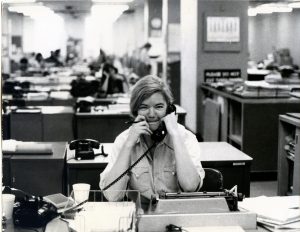 Though brought aboard to shake things up at the staid New York Times, rambunctious journalist Molly Ivins often ran afoul of the paper’s button down culture as explained in the new documentary, “Raise Hell: The Life & Times of Molly Ivins.” Photo courtesy of Magnolia Pictures.[/caption]
Though brought aboard to shake things up at the staid New York Times, rambunctious journalist Molly Ivins often ran afoul of the paper’s button down culture as explained in the new documentary, “Raise Hell: The Life & Times of Molly Ivins.” Photo courtesy of Magnolia Pictures.[/caption]
This, in turn, allowed Molly to have the courage to be herself, no matter how much her views and outlooks deviated from expected norms. Ivins never hesitated to speak her mind, both in person and in print, despite being part of a liberal minority in an otherwise-conservative state. She championed the causes of civil liberties and helping the downtrodden on both the state and national level, especially when initiatives in these areas were threatened by the tactics of the privileged looking out for themselves. While Republicans were her usual targets in these regards, she was also willing to take on those who claimed to be the friends of the underprivileged, such as she did in 1996, when she criticized President Bill Clinton’s (D) welfare reform plan.
In leveling her criticisms, Molly made frequent use of her signature weapon – humor. She believed it to be a unifying force, one that could uncannily draw smiles from both supporters and opponents of her viewpoints. She was expert at landing zingers, especially against pompous, blowhard politicians, a skill that would allow her to benignly but effectively shine a bright light on blatant boondoggles and rampant incompetence. And, in many instances, her one-liners worked wonders, exposing the fools for who they really were, even if her efforts were linked to circumstances that were ultimately no laughing matters.
Another of Molly’s formidable tools was her intuition, one of the two key components that contributes to belief formation. It enabled her to successfully size up situations for what they were, often allowing her to see things that others would miss. For example, given her extensive experience in covering the backslapping, smoke-filled room dealings of Texas-style politics, she became concerned when Gov. George W. Bush (R) announced his candidacy for President in 2000. She feared that, if Bush were to be elected, it would initiate a roll-out of Lone Star-style politics on a national scale, a prediction that many now contend came true and set a new standard, a legacy that we’re now left to wrestle with. Indeed, for what it’s worth, Molly’s intuition allowed her to see the future.
There’s a potent cautionary tale in that. Ivins sought to send us messages to heed, and their importance is just as significant now as they were at the time she penned them. Many of the issues that she tried to warn us about were in their early stages and have grown more acute since then. We’d be wise to consider going back and reading (or re-reading) what she wrote to sharpen our own insights into what’s happening – and what could happen if we ignore her warnings.
This thus illustrates the nature of Molly’s ultimate destiny, something that she pursued throughout her life and that has carried on even after her death. It’s essentially her expression of the conscious creation principle known as value fulfillment, the concept associated with living our lives as our best, truest selves for the benefit of ourselves and those around us. In this regard, Ivins clearly walked her talk, setting an example for those in her field and for anyone who cares about the kinds of issues she championed. We could use more like her these days; we can only hope that her story inspires others to follow in her footsteps.
This frank, no-holds-barred look at the life of one of the most celebrated straight-shooting professionals in her field provides a rip-roaring look at her career, filled with ample wit and wisdom typical of her signature style. Through an excellent compilation of archive footage and interviews with those who knew her and valued her work, such as journalists Dan Rather and Rachel Maddow, director Janice Engel’s offering provides viewers with an insightful inside look at Molly’s professional and personal life, as well as the legacy she left behind. This film reminds us what journalism can – and should – be, a profession that these days is only a shadow of its former self. Let’s hope this picture helps to inspire the would-be Mollys out there who want to become what she was.
In an age when the powers that be are striving to stifle dissent, it’s more important than ever to raise a little hell when called for. Molly Ivins recognized the importance of that and employed the tactic whenever appropriate, even under prevailing circumstances that were more relaxed than they are now. Given what we’re increasingly up against, we should take her message to heart. So get ready to beat those drums – and laugh our way through it.
Copyright © 2019, by Brent Marchant. All rights reserved.
Monday, September 23, 2019
Tune in for Movies with Meaning
Tune in for the latest Movies with Meaning segment on Frankiesense & More radio on The Good Media Network on Tuesday September 24 at 1:30 pm ET by clicking here. And, if you don't catch it live, hear and watch it later on demand!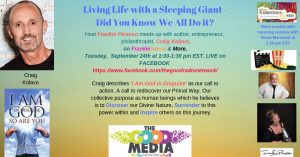
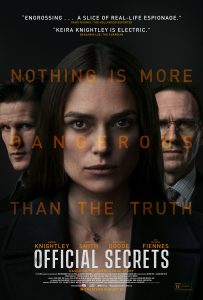
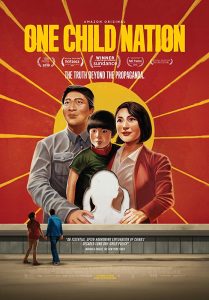

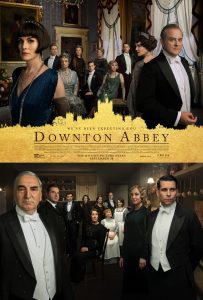
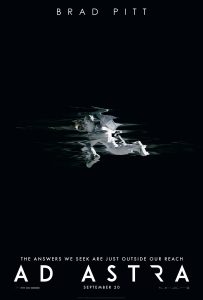
Friday, September 20, 2019
‘Puzzle’ seeks to assemble the pieces of our lives
“Puzzle” (2018). Cast: Kelly Macdonald, David Denman, Irrfan Khan, Austin Abrams, Bubba Weiler, Liv Hewson, Audrie Neenan. Director: Marc Turtletaub. Screenplay: Polly Mann and Oren Moverman. Story Source: Natalia Smirnoff, “Rompecabezas” (“Puzzle”), 2009 Argentinian film. Web site. Trailer.
Many of us look at our lives and see them as complete – only to discover not long thereafter that they’re not. Pieces may seem missing or out of place, realizations that we might view as frustrating, mystifying or even troubling. We could be tempted to ignore those shortcomings, hoping they’ll go away or resolve themselves on their own, but those “solutions” seldom work out as hoped for. It’s times like that when we must make a concerted effort to determine what’s gone awry and take steps to make repairs, a process detailed in the thoughtful domestic drama, “Puzzle,” now available on DVD and streaming services.
Middle-aged homemaker Agnes (Kelly Macdonald) is something of a walking anachronism. The forty-something wife and mother leads a modest existence that resembles something more out of the 1950s than the present day. She lives a quiet, traditional life in an immigrant community of Yonkers, having never ventured far from home (even to nearby New York) nor taken the time to pursue any interests of her own. Instead, she’s dutifully fulfilled the obligations of housewife, caretaker and humble parishioner, spending virtually all of her days cooking, cleaning and, like the good Catholic girl she was raised, helping out at the church. She even does all the preparations for her own birthday party, fixated more on the needs of her guests than enjoying herself.
[caption id="attachment_10986" align="aligncenter" width="300"] Having long lived a secluded life in Yonkers, middle-aged housewife Agnes (Kelly Macdonald, center) discovers a big wide world while on a trip to nearby New York in the nuanced domestic drama, “Puzzle,” available on DVD and streaming services. Photo by Linda Kallerus, courtesy of Sony Pictures Classics.[/caption]
Having long lived a secluded life in Yonkers, middle-aged housewife Agnes (Kelly Macdonald, center) discovers a big wide world while on a trip to nearby New York in the nuanced domestic drama, “Puzzle,” available on DVD and streaming services. Photo by Linda Kallerus, courtesy of Sony Pictures Classics.[/caption]
Agnes’s biggest obligation, though, is taking care of the men in her family, her husband, Louie (David Denman), and two teenage sons, Gabe (Austin Abrams) and Ziggy (Bubba Weiler). It’s a continuation of a tradition that began with looking after her widowed father, setting a pattern that has persisted unquestioningly into adulthood. To be sure, Agnes’s guys take good care of her, especially Louie, who is a devoted, loving protector, albeit a bit oblivious to recognizing and addressing her needs.
However, as Gabe and Ziggy approach their own adulthood, Agnes is facing the impending empty nest stage and begins to wonder about her life. Has she gotten everything out of it that she wants? And what will she do for her future if the role she has traditionally played changes? That’s hard to say, because even Agnes doesn’t have ready answers to these questions, having never taken the time to ponder these notions, let alone given herself permission to find out what pleases her.
That changes, though, when she opens her birthday presents. Agnes receives a jigsaw puzzle as a gift, and she’s captivated by it. She relishes the process of assembling the pieces to create a completed picture, especially when she discovers she’s quite good at it – not to mention fast. Simple as it might seem, Agnes suddenly has a new passion, and this time she decides to pursue it, even if somewhat discreetly. Given how she’s lived most of her life, she seems to feel a need to keep it under wraps, especially when it impacts her obligations to her family.
[caption id="attachment_10987" align="aligncenter" width="300"]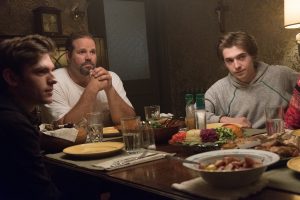 The men in the life of a middle-aged housewife – husband Louie (David Denman, center) and teenage sons Ziggy (Bubba Weiler, left) and Gabe (Austin Abrams, right) – are virtually her entire world, as seen in director Mark Turtletaub’s “Puzzle,” now available on DVD and streaming services. Photo by Linda Kallerus, courtesy of Sony Pictures Classics.[/caption]
The men in the life of a middle-aged housewife – husband Louie (David Denman, center) and teenage sons Ziggy (Bubba Weiler, left) and Gabe (Austin Abrams, right) – are virtually her entire world, as seen in director Mark Turtletaub’s “Puzzle,” now available on DVD and streaming services. Photo by Linda Kallerus, courtesy of Sony Pictures Classics.[/caption]
After assembling the puzzle she received as a gift, Agnes craves more. She ventures into New York to visit the store from which her gift was purchased, and she’s like a kid in a candy shop, picking up several new puzzles. While there, she also spots a notice about a competitive puzzler who’s seeking a partner to collaborate for a doubles tournament. Agnes takes the contact information and pursues the opportunity, a decision that’s very much out of character but that she nevertheless acts on, following her impulses with little hesitation.
Before long, Agnes meets her prospective puzzling partner, Robert (Irrfan Khan), a wealthy, divorced, bored, semiretired inventor. Her initial visit to his well-appointed New York townhouse is somewhat awkward, but there’s a definite, if uncomfortable, chemistry between the two of them. Puzzling may be the interest they share overtly, but there’s clearly more going on between them underneath the surface.
In his own way, Robert wants to help Agnes liberate the pent-up passion for living that she’s been suppressing for so many years. He’s aware that she has much to offer others, but he’s anxious to see her devote more of her energies to fulfilling her own wants and needs. It’s as if he sees her as a volcano on the verge of erupting if only she’ll allow herself to do so.
At the same time, Agnes seeks to help Robert re-engage with the world, coaxing him to emerge from the reclusive existence he’s slipped into in the wake of his divorce. She tries to show him that there’s more to life than just assembling puzzles, the only activity in which he seems to show any interest. Until now, he’s had little incentive to change, given that the ample financial resources he amassed from his technological expertise have enabled this comfortable, if isolated, lifestyle. She believes he has much more to offer the world, including in the career he’s allowed to atrophy, if only he’ll apply his talents as he once did.
[caption id="attachment_10988" align="aligncenter" width="300"]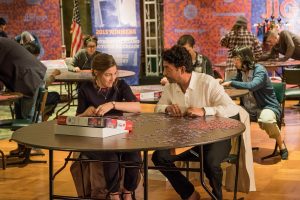 Middle-aged and long-sheltered housewife Agnes (Kelly Macdonald, left) discovers a new personal passion as a competitive jigsaw puzzler with her tournament partner, Robert (Irrfan Khan, right), as seen in the heartfelt domestic drama, “Puzzle.” Photo by Linda Kallerus, courtesy of Sony Pictures Classics.[/caption]
Middle-aged and long-sheltered housewife Agnes (Kelly Macdonald, left) discovers a new personal passion as a competitive jigsaw puzzler with her tournament partner, Robert (Irrfan Khan, right), as seen in the heartfelt domestic drama, “Puzzle.” Photo by Linda Kallerus, courtesy of Sony Pictures Classics.[/caption]
As the relationship develops, it begins to involve more than just assembling puzzles. But, metaphorically speaking, this is a fitting backdrop as Agnes and Robert struggle to see how the pieces of their connection fit together. In addition to sorting out their joint dealings, they each have their own individual considerations to address. For instance, Agnes has the future of her marriage to consider. She truly loves Louie, but she can’t help but wonder whether his limited view of their relationship and his inattentiveness to her needs are enough for her now that she’s begun to broaden her horizons. She wrestles with what to do, keeping her thoughts and feelings contained and even going so far as to make up stories about how she’s spending time that she’s having trouble accounting for.
So how will it all shake out? That’s what remains to be seen. Given everything that’s going on with Agnes, Robert and Louie, there are multiple directions in which matters can unfold. It all depends on the picture the principals each want to create for themselves, developments that are direct outgrowths of the conscious creation process, the philosophy that maintains we manifest the reality we experience through the power of our thoughts, beliefs and intents.
In many respects, this various threads of this story offer us an excellent look at how our beliefs construct our reality. The nature of each character’s existence is a clear reflection of their individual beliefs, and, as their beliefs begin to evolve, their respective realities become altered in kind, direct reflections of the thoughts and intents that brought these changes into being. It’s as if the film is giving us a primer on how this all works, presenting viewers with undeniably clear examples of the unfolding of the manifestation process. As beliefs change, so, too, do the realities that flow from them.
For example, as Agnes opens up to possibilities she hadn’t previously considered, her existence provides her with tangible options for experience and enjoyment that previously weren’t available to her. Similarly, as Robert chooses to reconnect with aspects of life other than his puzzles, he rejuvenates his enthusiasm for living, re-engaging with other elements of his existence, more so than he has done so for quite some time. And, as Louie begins to see his relationship with Agnes change, he realizes the need to become more cognizant of how he relates to her and how to address her wants and needs. None of this occurs instantaneously; it’s a gradual process but one that’s quite obviously tied to the evolution of the beliefs of those who bring their realities into being.
[caption id="attachment_10989" align="aligncenter" width="300"]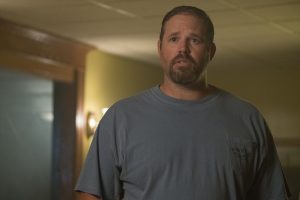 Louie (David Denman), a hard-working and protective but sometimes-oblivious husband, becomes bewildered about the state of his marriage when his long-predictable wife begins behaving in ways out of character as seen in “Puzzle,” now available on DVD and streaming services. Photo by Linda Kallerus, courtesy of Sony Pictures Classics.[/caption]
Louie (David Denman), a hard-working and protective but sometimes-oblivious husband, becomes bewildered about the state of his marriage when his long-predictable wife begins behaving in ways out of character as seen in “Puzzle,” now available on DVD and streaming services. Photo by Linda Kallerus, courtesy of Sony Pictures Classics.[/caption]
In each of these cases, the characters change their beliefs by disposing of those that no longer serve them and replacing them with rewritten notions more in line with what they want and need. Again, the process unfolds piecemeal, but it’s deliberate and thoughtful, even if the replacement beliefs aren’t immediately apparent.
For instance, Agnes comes to realize that she needs more out of life than simply attending to the well-being of the men in her life, that she requires personal fulfillment that has been stifled for decades, something that her passion for puzzles helps to illuminate. Robert, meanwhile, understands that he can no longer continue to hide in the comforts of his townhouse, alone and without meaningful connection to others and to a purposeful calling in life. And Louie sees that, if wants his marriage to continue, he must do more for Agnes than just provide the means for giving her a roof over her head and putting food on her plate; he must be more perceptive about her wants and needs and then take action to attend to them, an effort that requires him to believe that simply bringing home the bacon is not enough to make his marriage work.
To instigate this process, a catalytic spark is required. The catalysts in this story facilitate the evolution of the characters’ beliefs and enable the process to unfold. As the film illustrates, puzzles provide a fitting metaphor by urging the principals to see how the pieces of their transforming lives fit together. The puzzle assembly process symbolically prompts Agnes and Robert to take a different view of their lives, providing them with new perspectives of their existence. And this works not only for completing the pictures of their finished puzzles, but also for composing the picture of their lives.
[caption id="attachment_10990" align="aligncenter" width="300"] What begins as a competitive puzzling partnership takes unexpected turns over time as collaborators Robert (Irrfan Khan, left) and Agnes (Kelly Macdonald, right) discover in the nuanced domestic drama, “Puzzle.” Photo by Linda Kallerus, courtesy of Sony Pictures Classics.[/caption]
What begins as a competitive puzzling partnership takes unexpected turns over time as collaborators Robert (Irrfan Khan, left) and Agnes (Kelly Macdonald, right) discover in the nuanced domestic drama, “Puzzle.” Photo by Linda Kallerus, courtesy of Sony Pictures Classics.[/caption]
Admittedly, this process may require some trial and error to sort things out. Given that these characters have long lived rather limited forms of existence, they may well be uncomfortable stepping into unfamiliar territory, unsure of what suits them or even what they want. This process might also involve the practice of learning various life lessons, something that may not work out perfectly on the first attempt (or even multiple attempts). However, since this is part and parcel of our personal growth and development, this is not unexpected. We’d be wise to simply embrace this as an integral aspect of our evolution, one that we should hope will ultimately lead to greater degrees of awareness and enlightenment. Where Agnes, Robert and Louie are concerned, we can only hope that they find their way, that they discover lives that bring them the satisfaction and fulfillment they seek – something to which we should all aspire.
Life’s pieces don’t always fit together as well as we’d like, and “Puzzle” shows us just that, albeit a little too well at times. Based on the 2009 Argentinean film “Rompecabezas” (“Puzzle”), this feature successfully incorporates all the elements of a realistic, superbly nuanced picture, especially when it comes to reflecting the story’s central theme. However, director Mark Turtletaub’s offering could nevertheless use a little more narrative “glue” to hold the pieces together more effectively. At the same time, though, the heartfelt performances of Macdonald, Denman and Khan truly make this offering worth watching, but don’t be surprised if you sometimes find yourself just as frustrated as the characters themselves.
To say that life is sometimes “puzzling” is indeed an understatement. We may wonder why events transpire as they do, often leaving us with questions that seem unanswerable. But, with a little effort on our part, that need not be the case. By taking the time to assess our beliefs – both for what they are and for what we would like them to be – we can begin to put the pieces together to fashion a clear picture, one that we can hope is beautiful – and to our liking.
Copyright © 2019, by Brent Marchant. All rights reserved.
Wednesday, September 18, 2019
This Week in Movies with Meaning


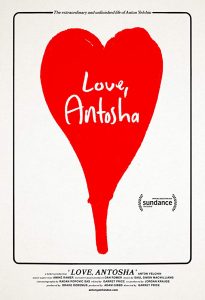


Tuesday, September 17, 2019
Check out The Cinema Scribe
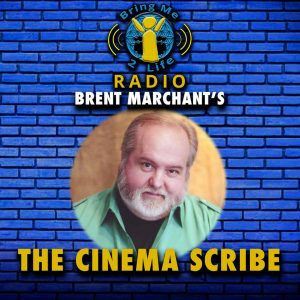

Monday, September 16, 2019
‘Official Secrets’ extols the virtues of integrity
“Official Secrets” (2019). Keira Knightley, Ralph Fiennes, Matt Smith, Matthew Goode, Rhys Ifan, Adam Bakri, Jeremy Northam, Conleth Hill, John Heffernan, Indira Varma, Niccy Lin, Monica Dolan, Shaun Dooley, Katherine Kelly, Hattie Morahan, Clive Francis, Kenneth Cranham, Tamsin Greig, Peter Guinness, Ray Panthaki, Raad Rawi. Archives: George W. Bush, Tony Blair, Colin Powell, Ari Fleischer, Peter Goldsmith. Director: Gavin Hood. Screenplay: Gregory Bernstein, Sara Bernstein and Gavin Hood. Book: Marcia Mitchell and Thomas Mitchell, The Spy Who Tried to Stop a War: Katharine Gun and the Secret Plot to Sanction the Iraq Invasion. Web site. Trailer.

It's been said that one of the most valuable currencies we possess is our personal integrity. It’s a measure of who we are as individuals, of how genuine we are with ourselves and with others. It’s important for how authentically we each interact with our world. Now imagine this principle applied on a national scale or even on the scale of an international alliance. It speaks volumes about a people and its leadership in its dealings with those outside its borders or territories. But what happens when that collective integrity gets called into question? The authenticity and honor of an entire country (or group of countries) could thus become suspect. It’s that sort of scenario that provides the backdrop for the chilling new fact-based biopic, “Official Secrets.”
In 2003, British intelligence specialist Katharine Gun (Keira Knightley) became an unexpected and unlikely player on the world’s geopolitical stage. As an employee of GCHQ, the United Kingdom’s Government Communications Headquarters, Gun routinely processed and translated classified information filtered through the agency, a position that, despite its high-level intelligence sensitivity, she initially saw as “just a job.” However, in the run-up to the Iraq War, as a concerned citizen, she became troubled over the country’s obviously forced efforts to make a case for the conflict. She became incensed watching the rhetorical drum-beating being stirred up in daily media reports featuring U.K. Prime Minister Tony Blair and U.S. President George W. Bush.
[caption id="attachment_10972" align="aligncenter" width="300"]
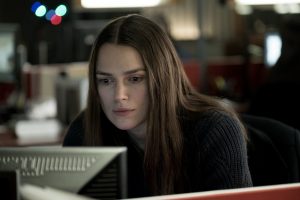 British intelligence specialist Katharine Gun (Keira Knightley) becomes troubled about her country’s potential involvement in the impending Iraq War when she uncovers a disturbing memo in the new fact-based biopic, “Official Secrets.” Photo by Nick Wall, courtesy of IFC Films.[/caption]
British intelligence specialist Katharine Gun (Keira Knightley) becomes troubled about her country’s potential involvement in the impending Iraq War when she uncovers a disturbing memo in the new fact-based biopic, “Official Secrets.” Photo by Nick Wall, courtesy of IFC Films.[/caption]Surprisingly, Gun’s reaction came across as somewhat out of character. Having never been overly politically active, her interest in this issue seemed uncharacteristically disproportionate. Such vehemence even became something of a cause for concern for her husband, Yasar (Adam Bakri), a Turkish Kurd who was applying for U.K. residency at the time. But this was nothing compared to what was to follow.
While at work one day, Gun came across a memo written by the chief of staff at the “regional targets” division of the National Security Agency, the super-secret American intelligence organization. The memo stated that the U.S. was enlisting Britain’s help in collecting compromising information on wavering United Nations Security Council members to blackmail them into voting in favor of an invasion of Iraq. Outraged, Gun could not stand by and watch the world rushed into an illegal war that would result in countless numbers of fatalities and injuries on both sides of the conflict.
The revelation of this initiative was enough for Gun to take action. But doing so involved taking a tremendous chance: As a GCHQ staffer, she swore an oath to defend the U.K.’s Official Secrets Act, a law designed to prevent the disclosure of highly sensitive information, one with severe penalties for violations. The law even placed stringent requirements on suspected violators when it came to sharing disclosed information with their attorneys, potentially compounding the charges that could be leveled and making a viable defense difficult. However, even with those possible consequences, Gun decided to move ahead, believing that she could cover her tracks well enough to keep her from being traced. She thus funneled a copy of the memo to contacts in the antiwar movement, who, in turn, shared it with reporter Martin Bright (Matt Smith) of the London-based newspaper The Observer.
[caption id="attachment_10973" align="aligncenter" width="300"]
 London newspaper reporter Martin Bright (Matt Smith) exposes a blockbuster government scandal in the run-up to the Iraq War in director Gavin Hood’s latest offering, “Official Secrets.” Photo courtesy of IFC Films.[/caption]
London newspaper reporter Martin Bright (Matt Smith) exposes a blockbuster government scandal in the run-up to the Iraq War in director Gavin Hood’s latest offering, “Official Secrets.” Photo courtesy of IFC Films.[/caption]Making a case for this story with The Observer was challenging, given its stated support for the war. But, after verifying the validity of the information with colleagues Ed Vulliamy (Rhys Ifans) and Peter Beaumont (Matthew Goode), Bright proceeded to report on the memo with the paper’s blessing. The revelation became a blockbuster story, despite official claims that the memo in question was a fake, a propagandist ploy created by antiwar advocates. Nevertheless, The Observer stood by its story as the U.S. and the U.K. attempted to force the hand of the U.N. Security Council and take the world to war.
With such an embarrassing story now circulating publicly, the British government in general and the GCHQ in particular aggressively sought to discover the source of the leak. A concerted investigation within Gun’s division began, one that led to the scrutiny of all of its employees. As staff members were grilled by management and investigators, Gun could not stand by and watch her colleagues take the heat for what she did. She decided to confess, an act that began a nightmare of harassment that impinged upon all areas of her life – firing, criminal charges, prison time and the possible deportation of her husband.
Gun took a tremendous risk in doing what she did. But, given the soft public sentiment about the war, she was not without sympathizers, particularly in the legal arena. With the aid of attorney Ben Emmerson (Ralph Fiennes) and his colleagues, Gun began planning a novel legal defense, one that contended the U.K. had engaged in an illegal war, a claim that, if successful, could exonerate her of the Official Secrets Act violations leveled against her. It was an effort that involved further investigation by Bright and his associates, as well as veiled admissions by government officials who could no longer condone the directives of their higher-ups. What came from it was stunning, but it’s amazing what integrity can compel when it’s put to the test.
[caption id="attachment_10974" align="aligncenter" width="300"]
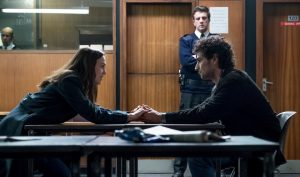 When British intelligence specialist Katharine Gun (Keira Knightley, left) comes under investigation for leaking top-secret government information, it also jeopardizes the pending legal residency status of her Turkish Kurd husband, Yasar (Adam Bakri, right), in “Official Secrets.” Photo by Nick Wall, courtesy of IFC Films.[/caption]
When British intelligence specialist Katharine Gun (Keira Knightley, left) comes under investigation for leaking top-secret government information, it also jeopardizes the pending legal residency status of her Turkish Kurd husband, Yasar (Adam Bakri, right), in “Official Secrets.” Photo by Nick Wall, courtesy of IFC Films.[/caption]In an age when integrity seems like it’s in increasingly short supply, Gun’s story shows us just how important it is – and how perilous our circumstances can become when it’s carelessly disregarded. That’s especially true when it comes to the fulfillment of the questionable agendas of a few with little or no regard for the majority that could be adversely affected. Integrity is thus an essential element to the formation of our beliefs and, subsequently, to the functioning of the conscious creation process, the philosophy than maintains we draw upon these metaphysical building blocks for the manifestation of the reality we experience. Indeed, without it, we can all too easily see what we get.
Voluntarily stepping up to play the role of whistleblower is often difficult, even under modest circumstances. So, in a situation where the stakes are as high as they are here, it takes an acutely clear sense of one’s integrity to approach the plate. And that, in turn, calls for a willingness to overcome our fears and live heroically. That was certainly the case where Gun was concerned, as she was ready to risk it all for a principle.
[caption id="attachment_10975" align="aligncenter" width="300"]
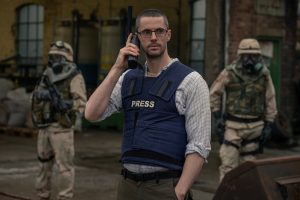 British journalist Peter Beaumont (Matthew Goode) investigates questionable claims of weapons of mass destruction while on the ground in Iraq in the new fact-based biopic, “Official Secrets.” Photo courtesy of IFC Films.[/caption]
British journalist Peter Beaumont (Matthew Goode) investigates questionable claims of weapons of mass destruction while on the ground in Iraq in the new fact-based biopic, “Official Secrets.” Photo courtesy of IFC Films.[/caption]It would be ideal if a nation and its leadership could have the clarity of mind to see this and to implement policies and practices in line with such thinking without prompting or coercion. But, when agendas become compromised by ancillary considerations that cause a people to lose their way, conditions need to be brought back into line by those who possess the integrity, courage and wherewithal to see the truth come shining through. Gun set quite the example in that regard, and we should be grateful for her efforts.
The irony here is that, in many ways, Gun seemed an unlikely candidate for taking on such a challenge. By her own admission, she initially didn’t even view her position as anything more than just a job. But, when the ugly truth became revealed, she could not turn a blind eye. She needed to live her own truth, even if it didn’t seem like it was in line with her typical self. Her beliefs and actions thus launched her in an entirely new direction in her life, one reflective of her destiny and value fulfillment, the conscious creation principle associated with becoming our best, truest selves for the betterment of ourselves and those around us. And, if that’s not the ultimate expression of integrity, I don’t know what is.
[caption id="attachment_10976" align="aligncenter" width="300"]
 While standing trial for violations of the Official Secrets Act, British intelligence specialist Katharine Gun (Keira Knightley, standing, background) awaits a verdict while her attorney, Ben Emmerson (Ralph Fiennes, left), pleads her case in “Official Secrets.” Photo courtesy of IFC Films.[/caption]
While standing trial for violations of the Official Secrets Act, British intelligence specialist Katharine Gun (Keira Knightley, standing, background) awaits a verdict while her attorney, Ben Emmerson (Ralph Fiennes, left), pleads her case in “Official Secrets.” Photo courtesy of IFC Films.[/caption]This somewhat rote but nevertheless compelling biopic tells the inspiring story of someone who was willing to put it all on the line for an idea. It’s a story not especially well known outside the U.K. (for reasons that become apparent in the film), yet it’s one with a message that we should all take to heart, a cautionary tale for those who might be a little too willing to dismiss it. Knightley delivers a knock-out, award-worthy performance as the unlikely heroine, backed by a superb supporting cast and the fine direction of filmmaker Gavin Hood. Regrettably, like the story it’s based on, “Official Secrets” hasn’t received much attention, but it’s definitely a worthwhile view.
Being true to ourselves isn’t always easy. Owning up to actions, policies and practices that don’t fit with what we claim to be the case takes a certain kind of courage and a willingness to admit the truth, no matter how unflattering, distasteful or hypocritical it might be. But, if we’re to live with ourselves, we must follow through with this, because, if we don’t, the consequences could end up being far worse than anything we might imagine, the kind of fallout that makes a little embarrassment pale by comparison.
Copyright © 2019, by Brent Marchant. All rights reserved.
Tuesday, September 10, 2019
‘Love, Antosha’ fondly applauds a life of creativity
“Love, Antosha” (2019). Cast: Anton Yelchin. Interviews: Irina Yelchin, Viktor Yelchin, Chris Pine, Zachary Quinto, John Cho, Zoe Saldana, Simon Pegg, J.J. Abrams, Jennifer Lawrence, Jodie Foster, Kristin Stewart, Martin Landau, Jon Voight, Willem Dafoe, Bryce Dallas Howard, Frank Langella, Sofia Boutella, Mary Lester, Ian Cripps, Sophie Simpson, Nick Jones, Paul David, Nicolas Cage (narrator). Archive Footage: Anthony Hopkins, Larry David, David Duchovny, Mel Gibson, Karl Urban, Leonard Nimoy, Walter Koenig, Robert DeNiro, Felicity Jones, Robert Downey Jr., Jake Gyllenhaal, Peter Dinklage. Director: Garret Price. Web site. Trailer.
When we look upon the works of artists of any stripe, we often gape in awe, admiring their output and wondering how they came up with their creations. We may even somewhat enviously say to ourselves “I could do that.” But, if so, why aren’t we? Do we lack the talent or resources? Are we intimidated that we won’t measure up? Or are we just unmotivated? If we really want it happen, we can do it, but we need to get ourselves in gear. Perhaps all it takes is a little inspiration, the kind served up in the uplifting new documentary, “Love, Antosha.”
Actor Anton Yelchin (1989-2016) was seemingly born to entertain. As the child of Soviet figure skaters Irina and Viktor Yelchin, the Leningrad-born Antosha came to the U.S. when he was six months old as rising anti-Semitism began to threaten the family’s security and well-being. After their arrival in California as officially sanctioned refugees, a young Anton began to show a talent for acting. In home “movies” made by the youngster, Anton did more than just aimlessly goof off in front of the video camera. He told stories and proudly proclaimed credit for all aspects of his productions. He was clearly on his way.
Not long after he began taking acting lessons, Anton’s teacher told his mother that he was ready to go on auditions. Irina and Anton were surprised – this was something they were primarily doing for fun – but they decided to follow the coach’s advice. And it worked. Before long, Anton was picked for several commercials and then small television roles. His success with these projects, in turn, led to frequent movie work all throughout his teens and into his twenties.
Yelchin quickly developed quite a filmography. He became known for parts in pictures like “Hearts in Atlantis” (2001), “Alpha Dog” (2006), “Charlie Bartlett” (2007), “Fright Night” (2011), “Only Lovers Left Alive” (2013), “Experimenter” (2015), “Green Room” (2015) and “Thoroughbreds” (2017), as well as all three installments of the latest “Star Trek” franchise reboot (2009, 2013, 2016) portraying iconic Starship Enterprise navigator Ens. Pavel Chekov. He also landed spots on TV series like ER (2000), Curb Your Enthusiasm (2004) and NYPD Blue (2004), as well as the Steven Spielberg-produced mini-series Taken (2002). Through these roles, Yelchin worked with some of the biggest names in the business, including actors Chris Pine, Zachary Quinto, John Cho, Zoe Saldana, Simon Pegg, Jennifer Lawrence, Jodie Foster, Kristin Stewart, Martin Landau, Jon Voight, Willem Dafoe, Bryce Dallas Howard, Frank Langella, Anthony Hopkins, Larry David, Mel Gibson, Leonard Nimoy, Felicity Jones, Robert Downey Jr., David Duchovny, Jake Gyllenhaal and Peter Dinklage, as well as director J.J. Abrams. That’s impressive company for any performer, especially for someone as young as he was.
In addition to his acting work, Yelchin was an accomplished musician, becoming proficient on the guitar after only a handful of lessons. He went on to perform in clubs in greater Los Angeles, earning quite a following. On top of that, he became adept as a photographer, model, writer and voice-over performer, having contributed to a number of animation and video game projects in the “Smurfs” franchise. And, if that weren’t enough, he was an aspiring filmmaker, having become well versed in film history and a variety of cinematic styles. Yelchin was truly a Renaissance man at a tender age with a bright future ahead of him.
But Anton was not without his challenges. He suffered from cystic fibrosis, a condition that required him to practice a regular and rigorous regimen of breathing exercises to stay healthy. He also had an ability to so immerse himself in his roles (particularly those of a dark nature) that he sometimes seriously worried those who cared about him. However, that ability to go within and to get in touch with himself is what made him so effective as a performer, one who completed nearly 70 film and TV roles in his brief career.
Even with such a full plate, Yelchin still managed to find time for those near and dear to him. He adored his parents, especially his mother. He was close to many of his co-stars, especially Kristin Stewart and Jennifer Lawrence, as well as Martin Landau, who saw Anton more as a contemporary than someone decades his junior. But, perhaps more importantly, he stayed life-long friends with many of his childhood acquaintances, preserving the closeness of those relationships, something that often falls by the wayside among Hollywood types when they become famous.
Considering everything Yelchin had to offer professionally and personally, he was deeply loved by those who knew and worked with him. Which is why his death at age 27 in a freak accident was so tragic. When his parked vehicle began rolling backward in his home’s steep driveway, he became pinned between it and a security fence, cutting off his breath, a fatal condition for someone with cystic fibrosis. One of the brightest lights in Hollywood went dark in an instant, cutting short one of the most promising careers in the business.
Those who struggle to express themselves creatively may think it unfair that one individual can be so artistically gifted. But Yelchin had a burning desire to do it all, so much so that many of his colleagues observed that it seemed like he never stopped working (pursuits that Anton himself probably didn’t even see as work). From this, then, it’s apparent that he was proficient in the ways of the conscious creation process, the philosophy that maintains we draw upon the power of our thoughts, beliefs and intents to manifest the reality we experience. Even if Yelchin had never heard of this practice, he certainly mastered many of its principles and put them to use in his creative output.
Yelchin’s creativity seemed to know no bounds. In addition to everything he accomplished, he had many ideas in mind for projects to come at the time of his death. Most notably, Yelchin was preparing to direct his first film, “Travis,” an homage to the Martin Scorsese classic “Taxi Driver” (1976), one of Anton’s favorite movies. Many elements of the production had already come together, including the financing, an increasingly challenging feat in today’s filmmaking landscape. This was more proof that he was eminently capable of envisioning his dreams, believing in their validity and seeing them come into being. It would have been interesting to see what he would have come up with.
In fulfilling these attainments, Yelchin proceeded fearlessly, unencumbered by whatever perceived limitations might stand in his way. To have accomplished as much as he did in such a short time is truly astounding, something that never would have happened if he had allowed himself to be deterred by obstacles. This is particularly true where his health was concerned. He was not about to let his condition bog him down, even if meant having to undertake an arduous treatment program in order to remain physically – and thus artistically – viable.
Based on his output, to say that Anton was a visionary is truly an understatement. His creativity seemed to come to him naturally, and this quality became reflected in his portrayals, even as a youngster. For example, in his first professional role on the TV series ER as a child grieving the loss of a parent, he was called upon to cry on camera, something that’s difficult enough even for seasoned veterans. Not for Yelchin, though; he came through as though he had been doing this sort of thing for years, a natural on the set in every sense of the word.
Anton’s success to a great degree came from his ability to tap into his intuition, one of the elements that contributes significantly to the formation of the beliefs necessary for manifestation. It enabled him to sense what was needed to play a role and to materialize it in his portrayal, a quality that made his performances appear so utterly natural.
Ironically, though, Anton’s intuition also filled him with uncomfortable feelings at times. For example, while on a movie shoot in a cemetery, he grew visibly uncomfortable, a trait that the film crew thought was simply part of his performance. But, after the fact, those who knew Yelchin have come to speculate that his genuine discomfort may have been indicative of a sense of things to come. Not long after the shoot, the actor went through a difficult stint with his health, one that necessitated an intensive treatment period to help him get his physical state back on track. And, unfortunately, his tragic death came shortly thereafter. These events thus can’t help but lead some to wonder whether he was aware, on some level, of his impending demise. That, in turn, may have impelled the sense of urgency he seemed to feel when it came to his work, to get as much completed as possible with the time available to him.
Given Anton’s life experience and the challenges he faced on various fronts – escaping the growing threat to his safety in his homeland, his chronic health condition and perhaps an unsettling awareness of his future – it’s obvious that he deeply and sincerely appreciated the gift of life. He made this apparent in many ways, such as the endearing notes, messages and greetings he sent to his mother, effusively expressing his gratitude for the life that she gave him. And, because of this, it’s clear he felt it important to make the most of what time we have in this existence, to live our lives and to creatively express ourselves to the fullest extent possible. He set a high standard, but he gave us all an impressive and inspiring measure to emulate.
A career cut short by tragedy may not seem like it would provide much material for a filmmaker to work with, but, when it comes to the prolific output of Anton Yelchin, there’s plenty to draw upon – and to look back upon in awe and melancholy. Director Garret Price’s new documentary shows just how much living Yelchin packed into his 27 years, with so much more left in the tank that he never got a chance to express. This bittersweet tribute to a multitalented (and underappreciated) artist features a wealth of clips from Yelchin’s many film and TV appearances and his many musical performances, along with a star-studded array of interviews from those who worked with him, those who knew him as a friend and the parents who adored him. Despite some occasionally sluggish pacing in the first 30 minutes, the film nevertheless manages to evoke a curious mixture of wonder, sadness and fondness in recognition of someone taken too soon. “Love, Antosha” is currently playing in limited release in theaters specializing in independent and documentary films.
When we reach the ends of our lives, one would hope that we’d approach the finish line without harboring any regrets, especially when it comes to things we wish we had done. Indeed, there are perhaps no more tragic lines than those that begin with the words “If only I had….” Even though Anton Yelchin’s work may not have been complete at the time of his death, he certainly packed more into his short lifetime than many of us might do over one several times its length. He showed us the joy and fulfillment that comes from aggressively engaging in such pursuits – so that we don’t end up lamenting what we left unfinished.
Copyright © 2019, by Brent Marchant. All rights reserved.
Movies with Meaning Is Back!
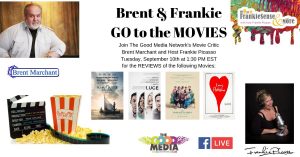
Tuesday, September 3, 2019
Tune in for The Cinema Scribe

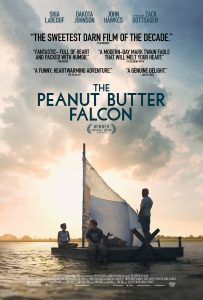
Monday, September 2, 2019
‘One Child Nation’ exposes the consequences of ignorance
“One Child Nation” (2019). Cast: Nanfu Wang, Brian Stuy, Longlan Stuy, Tunde Wang, Peng Wang, Huaru Tuan, Zhihao Wang, Shuqin Jiang, Zaodi Wang, Zhimei Wang, Jiaoming Pang. Directors: Nanfu Wang and Zhang Lynn. Web site. Trailer.
It’s all too easy to become so focused on what we want that we may fail to think things through. What’s more, the ante for this can get significantly upped when we examine the ramifications for taking no action. Now imagine what can happen when such a scenario unfolds on a national scale. Under such circumstances, there may be a tendency to act rashly, something that can have dire consequences, a situation detailed in the compelling new documentary, “One Child Nation.”
Chinese-born filmmaker Nanfu Wang didn’t think much about the one-child-only “family planning” policy of her homeland until after she immigrated to America and became pregnant herself. Having been born in 1985, six years after the policy took effect, she grew up accepting it as just the way things were, much like nearly all of her countrymen. But, once outside of China, free from the restrictions she would have faced if she had stayed, she began to contemplate the nature – and wisdom – of the policy.
The policy, adopted in 1979, was instituted to ward off a projected famine due to China’s skyrocketing population. In prior years, food shortages resulted in many deaths by starvation. And, with population growth projections in place at the time, it was believed the problem would only worsen, perhaps even leading to cannibalism. Given that, the new policy was introduced to stave off that apparent inevitability, with strict enforcement measures in place to ensure compliance. Restricting families to one child only was seen as a way to avoid tragedy and raise the standard of living for the average household, not to mention a legally dictated civic responsibility.
To help promote the policy, the government and the ruling Communist Party launched an aggressive and ubiquitous propaganda program to drill it into the minds of the Chinese people. The landscape was plastered cheesy, Maoist-style billboards, placards and signage, and the message was emblazoned on playing cards, matchbook covers and all other manner of printed material. The policy was also promoted through traveling stage shows, choral performances and music videos, as well as in the classroom songs taught to schoolchildren. There was no escaping it.
And that included the watchful eye of authorities, too. Women who gave birth were frequently force-sterilized after having their allotted child. Those who became pregnant a second time were often involuntarily forced into abortions, some of them late term in nature with the fetuses carelessly disposed of in trash heaps. Those who actually gave birth a second time generally had their children taken or killed, sometimes even by the very midwives who delivered them. Others found themselves desperately having to hide their offspring to avoid detection and seizure by officials. Mothers of twins faced similar treatment, having to settle for one child only, with the other murdered or confiscated by authorities. While some exceptions for second children were made for families in underpopulated rural areas, as was the case with Nanfu’s family, these instances were far from the rule. To call the practices barbaric was an understatement.
To complicate matters, most Chinese families wanted to have boys, and those who gave birth to girls often abandoned their daughters, surrendering them to orphanages or leaving them in baskets in public places like markets in hopes that someone would take them. This practice was so pervasive and well known that Nanfu’s brother, Zhihao, freely acknowledges this, admitting that, if he had been born a girl, he probably would have been left on someone’s doorstep.
In 1992, when China authorized the adoption of “orphans” by Western nations, the policy developed yet another shameful wrinkle – the emergence of a lucrative market in black market babies. Would-be parents in countries like the U.S., Canada and Spain thus found adoption opportunities available to them that previously didn’t exist. Unfortunately, given the criminal operations proliferating in China, those overseas parents couldn’t be guaranteed that they would be adopting bona fide orphans; many were girls abandoned by their birth families, twins snatched from their siblings or children simply grabbed off the streets whose backgrounds conveniently couldn’t be verified (if any attempt to do so was even made).
After years of burgeoning unanticipated problems, China discovered an even bigger issue: By limiting families to only one child over the course of two generations, the country has been left with an enormous population gap, a severely diminished working age citizenry that is bound to be incapable of financially supporting the nation’s elderly retirees. And this doesn’t even take into account a smaller consumer market or an insufficient number of laborers to fill all of the available jobs. Consequently, in 2015, the nation began to aggressively promote a two-child policy, one that officials hope will eventually undo the damage inflicted by a 35-year shortsighted social experiment.
While many contend that China’s one-child policy was instituted with the best of intentions, that it was an essential move to avoid an impending disaster, there are those who argue that its implementation wasn’t adequately thought through. Its draconian nature, critics say, went too far and ended up creating even more problems than it was meant to solve. Such is what can happen without due regard for the power of the conscious creation process, the philosophy that maintains we manifest the reality we experience through our thoughts, beliefs and intents.
While some might legitimately claim that hindsight is 20/20, there are those who would contend that the policy was a product of the process of un-conscious creation or creation by default, where the outcome is sought at any cost, without due consideration for the consequences. In a scenario like this, the beliefs are so focused on the results that no attention is given to the fallout – the pain and emotional suffering of those forcefully subjected to the policy, the criminal activity that arose from it, and the extensive, potentially irreparable damage to the nation’s population demographics. This was made all the more worse by the fact that this program emerged from the collective beliefs of virtually an entire country, a potent act of co-creation whose implementation was fueled by the masses and continually reinforced through an aggressive propaganda campaign, perpetuating its existence. Stopping a juggernaut like that is nearly impossible, especially since it had been allowed to become so ingrained in the nation’s psyche. In fact, to counteract the effect, China has had to introduce its new two-child policy with almost equal vigor to its predecessor – and again employing a propaganda program not unlike what preceded it.
Some might wonder why China’s population didn’t rise up against this policy. But, when one considers the government’s violent response to the peaceful 1989 Tiananmen Square student protests, it’s easy to see how citizens would fall into line. When faced with severe sanctions for failure to comply with the policy, most of the nation’s population capitulated, often saying “What choice did I have?” Few would probably argue with their reactions under the circumstances.
Regrettably, this illustrates what can happen when we give away our power, when we allow our beliefs to become distorted by the pressure placed upon us by others. Admittedly, it’s easy (and arguably unfair) for those of us not under the thumb of that kind of burden to say what we think the affected should do. But this scenario nevertheless shows how perilous the circumstances can become if we continue to allow ourselves to follow a path such as this.
The impact of this lingers even now after the policy’s abandonment. Many Chinese citizens still believe that the one-child policy was the right thing to do, including Nanfu’s mother, Zaodi, who was allowed an exemption to give birth to a second child. This is even more evident among government authorities who were responsible for enforcement, such as highly decorated family planner Shuqin Jiang, who insists that the policy was necessary, despite whatever “sacrifices” might have been made along the way. These attitudes thus show the power and persistence of beliefs – and how they can enable our manifestations to become so forcefully entrenched, even when they’re no longer officially in force.
Of course, it is possible to make up for the mistakes; conscious creation always makes redemption possible. The two-child policy, for example, is an attempt to restore the population shortfall, even though the degree of damage that was done by its predecessor may take quite some time to rectify (and perhaps not even completely).
But what’s perhaps more meaningful are the individual efforts that have been launched to try to make up for past missteps. These initiatives in and of themselves may not have widespread impact, but they illustrate changes in the zeitgeist that could eventually take hold and help to reshape the prevailing perspective to prevent atrocities and shortsightedness from recurring. For instance, midwife Huaru Tuan, who delivered Nanfu, acknowledges the immorality of some of her actions in the past – the abortions, the forced sterilizations, the killings – and today has devoted herself to assisting couples with infertility issues. She admits that this won’t make up for what she calls her “sins,” but she hopes that, with each child she helps an otherwise-infertile couple to bring into the world, she helps to make up for the lives she took because she was simply following orders.
Likewise, former village official Tunde Wang, who was once responsible for calling out those who violated the policy, openly expresses his regrets about his past actions, admitting that they were wrong and that they tore him up when forced to do so. While his confessions may not bring back the children who were lost or wipe away the punishments inflicted on “the guilty,” his sincere desire to express his regrets feeds positive energy and healing beliefs into the nation’s collective unconscious, contributions that, one would hope, will help to prevent such tragedies in the future.
Making others aware of the failings of this policy help, too. Artist Peng Wang, for example, has created troubling but poignant works that include imagery of the discarded fetuses, a shocking but attention-getting way of informing the unaware of just how horrific the policy could be. Journalist Jiaoming Pang meanwhile wrote an exposé about the separation of twins, The Orphans of Shao, a project so controversial that it forced him to escape from China to Hong Kong for fear of his own safety. And then there are the efforts of Brian and Longlan Stuy, a Utah couple who have adopted three girls from China and subsequently learned about the black market dealings involving the nation’s orphanages and adoption agencies. They have since launched a service to help parents learn the truth about the backgrounds of their adopted children, all in hopes of helping to set the record straight for those who may have been unfairly separated from their families.
When a nation’s survival is on the line, as China claimed was the case in 1979, it may be easy to embrace desperate measures. And the one-child program may have staved off the tragedy it was meant to prevent. But is it wise to cavalierly adopt policies that could potentially raise all manner of other issues in the process? That’s what “One Child Nation” attempts to draw into sharp focus, offering us a powerful cautionary tale about what can happen when actions stem from inadequate thought.
Nanfu Wang’s insightful, sometimes-gruesome, often-appalling look at China’s failed policy details the horrendous emotional damage inflicted upon all those the policy touched, as well as the negative social implications that arose from it both at present and for the future. Yet the director skillfully restrains herself from taking an adversarial position with her interview subjects, letting their own words speak for themselves, for better or worse. This impressive offering earned the film the Grand Jury Prize in the Documentary Category at the Sundance Film Festival earlier this year.
When it comes to our family, emotions are often charged, even under ideal circumstances. So when that part of our life is intruded upon by a cold, impersonal force that dictates terms to us about how we handle its affairs, we might well feel imposed upon, perhaps even violated. Such was the case for the citizens of China for 35 years, a situation whose enduring implications are felt even today. We can only hope we heed the message of this film – and never make those same mistakes again.
Copyright © 2019, by Brent Marchant. All rights reserved.
